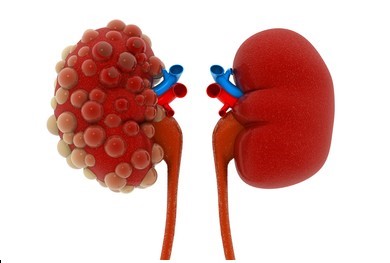
Kidney Diseases-2021

Theme: Advancements In The Treatment of Kidney Diseases
Webinar on Kidney Diseases will be organized on September 30, 2021; at 10:00 AM (GMT+4). This Webinar aims to support all scientists and scholars all over the world in demonstrating their ideas through a safe and successful event. The main aim of this webinar/virtual meeting is to make international online events as safe as possible from the public health risks of the Covid-19 with technical support. Our webinar highlights the theme, "Advancements In The Treatment Of Kidney Diseases".
The Kidney Diseases Webinar will draw attention to the ongoing explorations in the world of medical sciences showing a remarkably admissible concept for the nephrologists, specialists, medical services experts, and scholars worldwide to meet and recognize the advancements in nephrology and its treatment procedures.
Session 01: Acute and Chronic Kidney Failures
Kidney problems can develop straight away (acute) or over a long period (chronic). Many circumstances, diseases, and medicines can create situations that lead to acute and chronic kidney problems. Acute renal injury, which used to be called acute renal failure, is more commonly reversible than chronic kidney failure. People suffering from diabetes or high blood pressure(hypertension) are at higher risk for kidney disease. If you undergo kidney failure, treatments might include kidney transplants or dialysis. On the other side, kidney problems also include acute kidney injury, kidney cysts, stones in the kidney, and kidney infections.
Session 02: Hypertension after renal transplantation
Most kidney transplanted patients develop arterial hypertension after renal transplantation. Together with very well-known and usual risk factors, post-transplant hypertension contributes to the whole cardiovascular morbidity and mortality in the kidney transplant population. The reasons for post-transplant hypertension are factors related to donors and recipients, immunosuppressive therapy like Calcineurin Inhibitors (CNI), and surgery procedures (stenosis and kinking of the renal artery and ureteral obstruction).
Session 03: Kidney disorders in Children
The investigation of pediatric nephrology decides determination and supervision of babies with perpetual and intense kidney issue. The division of pediatric nephrology surveys and treats hypertension, hematuria, proteinuria, renal tubular acidosis, glomerulonephritis and kidney harm in youngsters. It similarly incorporate finish care to pediatric patients with end organize kidney disorders, including thought to patients facing peritoneal dialysis, hemodialysis and kidney transplantation in infants. Of children presenting with idiopathic nephrotic syndrome, 80–90% will be responsive to prednisolone and are considered to have SSNS. Following remission, about 20% of children do not have further relapses, 40% will relapse infrequently, while the remaining 40% will relapse frequently or be steroid dependent. The risks of a child developing frequent relapses or becoming steroid dependent are increased with shorter time to first relapse, the number of relapses in the first 6 months after initial treatment, younger age at the initial episode, prolonged time to first remission, infection at first relapse and male sex.
Session 04: Renal Calculus
Renal calculi are a common cause of blood in the urine (hematuria) and pain in the abdomen, flank, or groin. They occur in one in 11 people at some time in their lifetimes with men affected 2 to 1 over women. Development of the stones is related to decreased urine volume or increased excretion of stone-forming components such as calcium, oxalate, uric acid, cystine, xanthine, and phosphate. Diet, excess body weight, some medical conditions, and certain supplements and medications are among the many causes of kidney stones. Kidney stones can affect any part of your urinary tract — from your kidneys to your bladder. Often, stones form when the urine becomes concentrated, allowing minerals to crystallize and stick together. Renal calculi are a common cause of blood in the urine (hematuria) and pain in the abdomen, flank, or groin. They occur in one in 11 people at some time in their lifetimes with men affected 2 to 1 over women. Development of the stones is related to decreased urine volume or increased excretion of stone-forming components such as calcium, oxalate, uric acid, cystine, xanthine, and phosphate.
Session 03: Kidney disorders in Children
The investigation of pediatric nephrology decides determination and supervision of babies with perpetual and intense kidney issue. The division of pediatric nephrology surveys and treats hypertension, hematuria, proteinuria, renal tubular acidosis, glomerulonephritis and kidney harm in youngsters. It similarly incorporate finish care to pediatric patients with end organize kidney disorders, including thought to patients facing peritoneal dialysis, hemodialysis and kidney transplantation in infants. Of children presenting with idiopathic nephrotic syndrome, 80–90% will be responsive to prednisolone and are considered to have SSNS. Following remission, about 20% of children do not have further relapses, 40% will relapse infrequently, while the remaining 40% will relapse frequently or be steroid dependent. The risks of a child developing frequent relapses or becoming steroid dependent are increased with shorter time to first relapse, the number of relapses in the first 6 months after initial treatment, younger age at the initial episode, prolonged time to first remission, infection at first relapse and male sex.
Session 04: Renal Calculus
Renal calculi are a common cause of blood in the urine (hematuria) and pain in the abdomen, flank, or groin. They occur in one in 11 people at some time in their lifetimes with men affected 2 to 1 over women. Development of the stones is related to decreased urine volume or increased excretion of stone-forming components such as calcium, oxalate, uric acid, cystine, xanthine, and phosphate. Diet, excess body weight, some medical conditions, and certain supplements and medications are among the many causes of kidney stones. Kidney stones can affect any part of your urinary tract — from your kidneys to your bladder. Often, stones form when the urine becomes concentrated, allowing minerals to crystallize and stick together. Renal calculi are a common cause of blood in the urine (hematuria) and pain in the abdomen, flank, or groin. They occur in one in 11 people at some time in their lifetimes with men affected 2 to 1 over women. Development of the stones is related to decreased urine volume or increased excretion of stone-forming components such as calcium, oxalate, uric acid, cystine, xanthine, and phosphate.
Session 05: Renal Replacement Therapy
Hemodialysis is a source of increased stress in the "unphysiological sense" of intermittent renal replacement therapy. The first stress is a 'biologic or cytokine storm,' which occurs when blood interacts with a dialyser membrane and its extracorporeal circuit, resulting in a disorder known as hemoincompatibility, which includes the activation of protein and cell systems in a cascade, as well as the release of numerous proinflammatory mediators. While significant progress has already been made with less reactive biomaterials, such as synthetic polymer hemodialysers, less bio reactive tubing content, and improved circuitry geometry, further progress is needed in the future.
Hemodialysis is a source of increased stress in the "unphysiological sense" of intermittent renal replacement therapy. The first stress is a 'biologic or cytokine storm,' which occurs when blood interacts with a dialyser membrane and its extracorporeal circuit, resulting in a disorder known as hemoincompatibility, which includes the activation of protein and cell systems in a cascade, as well as the release of numerous proinflammatory mediators. While significant progress has already been made with less reactive biomaterials, such as synthetic polymer hemodialysers, less bio reactive tubing content, and improved circuitry geometry, further progress is needed in the future.
Session 06: Clinical Investigation and Case Reports
A case report is a method for conveying something new that has been learned from clinical practice. It could be around an astonishing or beforehand obscure condition, an uncommon presentation or difficulty of a known illness, or even another way to deal with dealing with a typical condition. A case study gives an accurate report of indications, signs, conclusion, treatment, and follow-up of an individual patient. Case reports may contain a statistical profile of the patient and assume a significant part in the field of restorative clinical research and prove-based pharmaceutical. Besides, case studies will function as an early cautioning signal for the antagonistic impacts of the latest solutions, or the presentations of new and rising ailments.
Meetings International is a worldwide pioneer in delivering top notch gatherings, workshops and symposia in every significant field of science, innovation and medication worldwide receives 400,000+ online visitors with 1000+ sessions which confirm the outstanding pool of new users and visitors creating a platform to build your market place globally. Since its initiation, Meetings Int. has been related with national and global affiliations, organizations and elevated level people, committed to have world class meetings and occasions so its provide a big platform to show your product and advertise. The explorer’s traffic is the benchmark for advertisement and the Nephrology webinar website is continually dragged in observer over the world. As specify by the Google Analytics, in excess of 12,836 researchers and industrials are visiting to our conference sites. Kidney Diseases 2021 virtual seminar help you to put the spotlight on your brand by advertising with more than 9 million+ readers worldwide and about 5 million+ hits every month on our site. We provide a good opportunity to boost your business on our platform. We offer a range of eye-catching advertising spaces and branding. Researchers from significant nations including United States, Japan, United Kingdom, India, France, Taiwan, and Germany etc. Visit our conference site. Subscribers and conference attendees can be your upcoming enthusiastic customers. We maintain high quality and ethical standards in event industry, which makes us unique and better than the rest. Advertisement banner must be provided by the advertising company and must be in the jpg or jpeg format. The banner must be of high resolution and must not have copyright infringement.
For further queries, connect our Program Manager at: nephrology@theexpertsmeet.com; contact@meetingsint.com
- Acute and Chronic Kidney Failures
- Hypertension after renal transplantation
- Kidney disorders in Children
- Renal Calculus
- Renal Replacement Therapy
- Clinical Investigation and Case Reports
- Journal of Nephrology & Renal Diseases
6 Renowned Speakers
Mohamed Alsaid Abdellatif
Ministry of Health,
Egypt
Rajesh Sherke
Sr.Consultant Nephrologist
United Arab Emirates
Hassa Al Zaabi
Zayed Military Hospital
United Arab Emirates
Mohamed Abd Elnaser Abd ELkarim
Internal Medicine and Cardiology departments
Egypt
Faswal Pichan
Clinical Dialysis Technologist
India
Marsida Duli
Head of Nursery and Physiotherapy Department
Albania























































































































